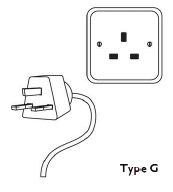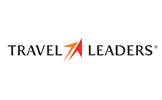NORTHERN IRELAND

Fun Facts From Globus Tours
- The RMS Titanic was built and launched by the Harland and Wolff Shipyard in Belfast in 1912.
- Giant’s Causeway was formed some 50-60 million years ago as a result of repeated outpourings of volcanic basalt, but legend has it that the Irish warrior Finn MacCool built this causeway to Scotland
Northern Ireland’s culture and history are as rich as the land is green. For a country that has endured such political strife and turmoil, its peace and beauty still astound visitors time after time. Located on the northeastern tip of Ireland, Northern Ireland is a country of the United Kingdom and makes up roughly 3% of the UK’s population, and 30% of the island’s population. Since the signing of the Good Friday Agreement in 1998, Northern Ireland is largely self-governing. For many years the country was the site of a violent and bitter inter-communal conflict – the Troubles – which was caused by divisions between nationalists, who see themselves as Irish and are predominantly Roman Catholic, and unionists, who see themselves as British and are predominantly Protestant.
But this is also a land of blue mountains and forest parks, mazy lakes and windswept moors, white Atlantic sands, and an inland sea. In fact, it’s a country that is just pretending to be small. Dozens of small towns are hidden away among the green places of the countryside, and fishing villages string out along the shores. The towers and steeples of parish churches mark the high ground beyond trimmed hedgerows. The weather can be fickle, but the rain keeps the land a magical emerald green and, when the wind blows the clouds to sea, the sky like the mountains is blue.
Belfast, Northern Ireland’s capital was the engine-room that drove the whirring wheels of the industrial revolution in the region. The development of industries like linen, rope-making and shipbuilding doubled the size of the town every 10 years. The world’s largest dry dock is in Belfast and the shipyard’s giant cranes tower over the port. Today, Belfast remains a center for industry as well as higher education, art, and business. It has a great selection of art galleries and museums, and frequently hosts many festivals and special exhibitions.
Sports plays a major part in Northern Ireland society. Football/soccer is probably the most popular sport followed closely by Gaelic football. Rugby, cricket and hockey tend to be organized on an all-Ireland basis with Northern Ireland and the Republic of Ireland often fielding a single team. And then there is golf – think of Darren Clark, Graeme McDowell and Rory McIlroy to name just a few! Northern Ireland is also gaining renown for the reputation of its local food producers, and traditional food crafts such as butchery, bakery and distilling, have a long and proud history here. Most traditional dishes have their roots in potatoes and bread, and farming families used to eat at least one Ulster Fry a day.
You will be delighted by the richness of the Irish culture and feel a sense of warmth from the people of this great and unique region!
VISAS, PASSPORTS, AND OTHER ENTRY REQUIREMENTS
Visas to Northern Ireland are not required for US citizens. If you hold a passport from another country, please check with your local consulate about requirements for travel to Northern Ireland. All passengers traveling internationally are required to have a passport. Please carry proper identification (your passport) on you and do not leave it in your suitcase or hotel room.
It is advisable to carry your passport with you at all times.
COUNTRY CODES
The country code for Northern Ireland is 44. When calling to Northern Ireland from overseas, dial your international access code (011 from the US/Canada), followed by the country code, area code, and phone number. Phone numbers in Northern Ireland are 10 digits in length. Dialing from the US/Canada: 011 44+## +#### ####.
CURRENCY
Throughout the United Kingdom and Northern Ireland the currency is the Pound Sterling or also known as the British Pound (GBP).
Bank hours: 9 a.m. to 5 p.m., Monday through Friday. Some branches stay open Saturday mornings.
Euro coins differ according to country, but they can be used in any Eurozone state. Bank notes are of uniform EU design (depicting European architectural styles throughout seven ages, from Classical to Modern times).
1 POUND (£) STERLING = 100 Pence (p)
- Banknote denominations: denominations: £5, £10, £20, £50
- Coin denominations: 1p, 2p, 5p, 10p, 20p, 50p, £1, £2
For the most current exchange rates, please go to our website at Globusjourneys.com/Currency.
Credit cards are widely accepted, and you should have no problems using them (mostly Visa and MasterCard). Smaller shops may ask you to pay in cash or have a minimum amount required to use a credit card.
BUDGETING AND SHOPPING
The following budget guidelines are just approximate values or starting values for meals and are per person. Actual prices will vary widely by restaurant and city within a country but below are some averages as provided by our experienced personnel.
- The approximate cost of a soft drink/mineral water/coffee is £3.
- An average lunch consisting of a salad or sandwich and a soda or water starts at approximately £8.
- Dinner at a mid-range restaurant with dessert and a non-alcoholic beverage starts at approximately £25.
Counterfeit and pirated goods are widely available; be aware that under local law transactions involving such products may be illegal, and bringing them home may result in confiscation and fines.
Sales tax or VAT (value added tax) is included on price tags. To obtain VAT refunds (which may take up to three months to process) special forms usually have to be stamped by Customs; please ask for a tax-free shopping form with each purchase and follow the instructions for completion. Customs import charges on items shipped home are not included in purchase prices.
TIPPING
Tipping is common in the United Kingdom. A tip of 10% is usually acceptable. Some restaurants add an optional service charge to the check which is in lieu of tipping the service staff directly. However, tipping in pubs for drinks ordered at the bar is not customary.
Tipping for taxis is generally not expected but rounding up of the fare is appreciated.
ELECTRICITY AND ELECTRICAL OUTLETS
Outlets
Voltage for outlets is 240V. North American voltage is generally 110V. Therefore, you will need a converter for your travels. Adapters will be necessary to adapt your plug into the outlet, but these may not convert the voltage, so both devices are necessary.
TEMPERATURES
Weather is unpredictable in Northern Ireland, so we recommend rain gear and a mix of lightweight and some warmer layers year-round. July and August tend to be the warmest months while April and May may be the driest. To help you plan, below are average low and high temperatures for Northern Ireland.

To convert to Celsius, subtract 30, then divide by 2. While not exact, this simple formula will give a close estimation.
FOOD SPECIALTIES
Ulster Fry, Irish Stew, Champ, Lough Neagh eel, potato bread, soda and wheaten bread, Ardglass potted herring, buttermilk, Bushmills Irish whiskey.
FEW WORDS OF THE LOCAL LANGUAGE
American/British English:

Elevator: Lift, Apartment: Flat, Yard: Garden, Trunk: Boot, Truck: Lorry, Bartender: Barman, Cell phone: Mobile, Check: Bill, Bill: Bank note, Trash can: Bin, Sidewalk: Pavement, Drugstore: Chemist, Band-Aid: Plaster, Bathroom/Washroom/Restroom: Toilet/WC/loo, Highway: Motorway, Subway: Tube/ underground, Taxi: Cab, Traffic circle: Roundabout, Crosswalk: Pedestrian crossing, Movie theater: Cinema, Orchestra seats: Stalls, Sweater: Jumper, Pants/slacks: Trousers, Pantyhose: Tights, Sneakers: Trainers, Line: Queue, Mail: Post, Napkin: Serviette, Fries: Chips, Potato chips: Crisps, Eggplant: Aubergine, Dessert: Pudding, Jelly: Jam, Cookie: Biscuit, Liquor: Spirits, Dark ale: Bitter, Beer: Lager, Emergency room: Casualty, Washcloth: Flannel, Wallet: Purse, Purse: Handbag.
Irish Gaelic (pronunciation in parentheses):
Good Morning: Dia duit ar maidin (Djiah gwich air mahdjeen), Good bye: Slán (Shlahn), Thank you: Go raibh maith agat (Guramahhagut), Please: Más é do thoil è (Mushayduh-hulyah), Cheers: Sláinte (Shlandja).
U.S. DEPARTMENT OF STATE COUNTRY INFORMATION
Additional country-specific information for US citizens can be found on the US Government’s website www.travel.state.gov. Here, you can find the most up-to-date information about destination descriptions, passports/visas, safety and security, transportation, travel local laws, alerts/warnings, vaccinations, and more. For citizens of other nations, we recommend you consult your local consulate for travel information, regulations, and requirements.













